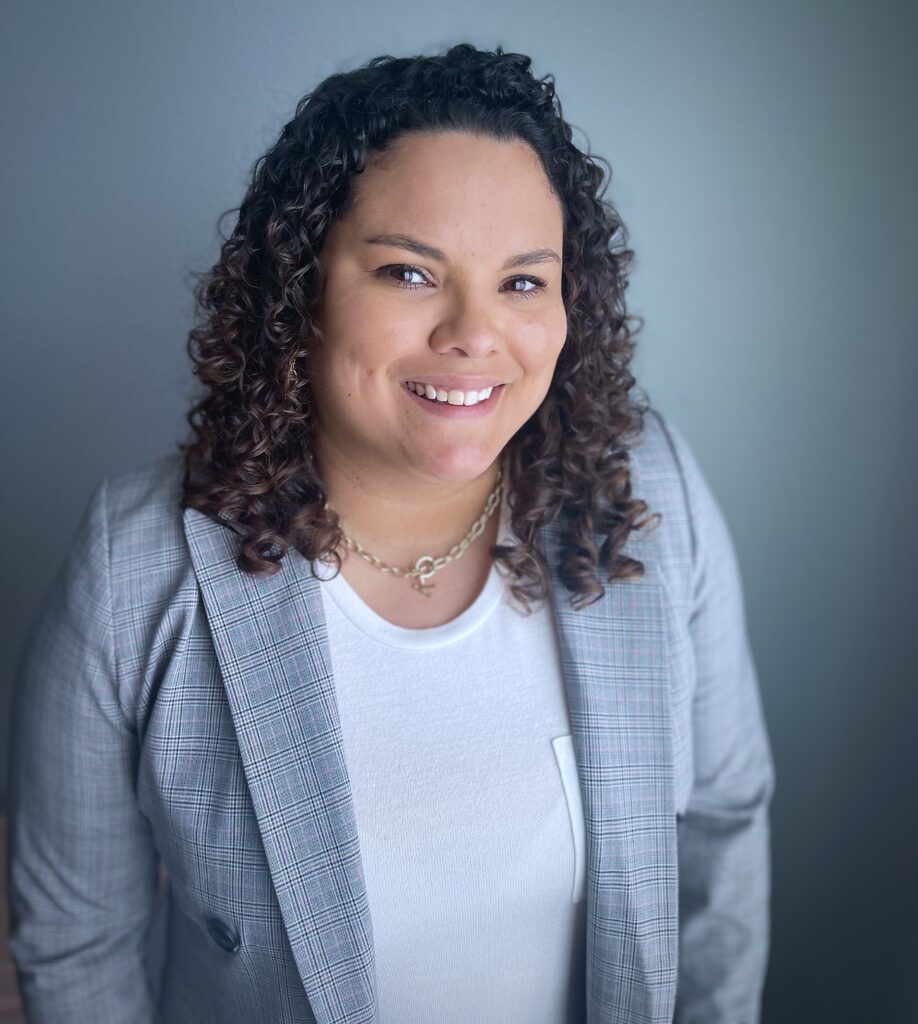Dr. Katherine Bynum is an Assistant Professor and historian with a focus on Black and Brown freedom struggles. Currently, she is working on her book, Unite and Be Free: The Formation of a Multiracial Coalition against Police Brutality in Dallas. We sat down with her and asked how she created her book.

Question: What does your research focus on? What inspired you to dedicate yourself to this research?
Answer: My research explores multiracial coalitions against police violence during the civil rights movement in Dallas. I initially came to this research while I was working for an oral history project called “Civil Rights in Black and Brown.” The project set out to interview Black and Brown civil rights organizers all across the state of Texas. I was struck by how often people in their interviews brought up police brutality. At that time, the #BlackLivesMatter movement was unfolding and we, as a nation, were having conversations about police violence. Many interviewees compared police violence happening in the present to what they experienced in the 1960s and beyond, and that it’s what inspired them to start organizing in their own communities before organizing across race and class.
Q: Tell us about your dissertation.
A: My dissertation explores the “long civil rights movement” of both African Americans and Mexican Americans in Dallas, spanning the 1920s until 1990. It centralizes the experiences of people of color in combatting police brutality from an organizational level. Numerous civil rights groups strategized and implemented tactics to curb police abuse.
Q: What is the difference between a dissertation and a book written by an academic?
A: A dissertation is a research-focused manuscript that PhD students complete to demonstrate mastery over their field. A book, especially a first book written by an academic, is often a revised version of the dissertation. Dissertations are generally not meant for immediate publication since only the dissertation committee reads it and provides feedback. Writing a book requires much more feedback, editing, and revising.
Q: Tell us about your forthcoming book.
A: My book, Unite and Be Free: The Formation of a Multiracial Coalition against Police Brutality in Dallas, alters modern understandings of the Black and Brown freedom struggles by placing police violence at the center of analysis. Deep-rooted societal beliefs that associated African Americans and Mexican Americans with ideas of inferiority and criminality subjected both groups to an omnipresent carceral network of institutions at the local, state, and federal level. Whether via physical or systemic psychological abuse, the state violence under which Jim Crow and its relative Juan Crow operated served as catalysts for Black and Brown contestation. At the same time, carceral power remained an essential component of civil rights discourse. Activists developed movement strategies in direct confrontation to such forces, and sometimes found space to develop temporary coalitions with one another. Conversely, the edicts of Jim Crow and the established racial hierarchy—an order that Mexican Americans could circumnavigate by claiming whiteness, but that African Americans could not—prevented the two populations from the formation of a sustained alliance. The expansion of the social welfare state in the 1960s with the advent of the War on Poverty, however, provided new opportunities for Black and Brown people to collaborate even as they competed for limited political and economic resources. Furthermore, President Lyndon B. Johnson’s expansion of the carceral state via the War on Crime targeted the activities of Black and Brown organizers. This new form of counterinsurgent policing victimized a number of activists. Still, the coalition that originated with the War on Poverty persisted, and in the 1970s and 1980s, morphed into other avenues of cooperative protest, at times incorporating working-class whites when the activists all together protested police violence. These activists then translated their street protests into elected positions of power and brought the Dallas Police Department under federal oversight when U. S. Representative John Conyers from Michigan held a Congressional hearing on police brutality in Dallas.
Q: What has your experience been working to publish your book?
A: I am fortunate that I have an amazing editor at the University of Pennsylvania Press and lots of support from my colleagues here at ASU and other institutions across the U.S. who have helped me think more critically and deeply about my research. Writing a book is like training for a marathon. You don’t just run 26.2 miles having never run before. You must slowly build up your skills until you cross the finish line.
Q: What challenges do you face writing your book? What accomplishments have you made?
A: Writing a book is hard! Writing in general is challenging and time-consuming. I have good writing days and bad writing days when my brain is so tired that it’s hard to formulate a sentence. Days like that can really mess with your self-esteem and make you think that you are an imposter or not good enough. Good writing days, however, are euphoric. I try to hold onto those feelings whenever I have a bad writing day. It helps me put my performance into perspective—that we can’t ever be at our best every single day and to be patient because a good writing day will come again.
Q: How are you able to manage your time between writing, working and your other responsibilities?
A: Time management is also a challenge, and some days are better than others. Sometimes I have so much other work to do that I can’t dedicate as much time as I would like to write. I can also be a little rigid in my thinking—meaning that I often will beat myself up if I don’t spend at least two hours on my manuscript every day. I’ve really had to work on being more flexible with what my schedule allows. I also have to engage in self-care, which is a challenge, too. Self-care is often the first thing I drop when I get busy, but not doing it leads to pretty intense burn-out and I’m less productive in the long run.
Q: What advice would you give to others looking to one day write a book?
A: Find a community of people who are also going through the writing process. It’s been such a life-saving measure for me. We often think we are the only ones experiencing negative self-talk or imposter syndrome, but most of us academics face these similar kinds of challenges when we write. It was such a relief when I discovered other people feel the way I do—that it’s not just me and that I’m not alone. Writing can be such an isolating process, but having a good network of people to both share war stories and provide feedback on our work is so important.

